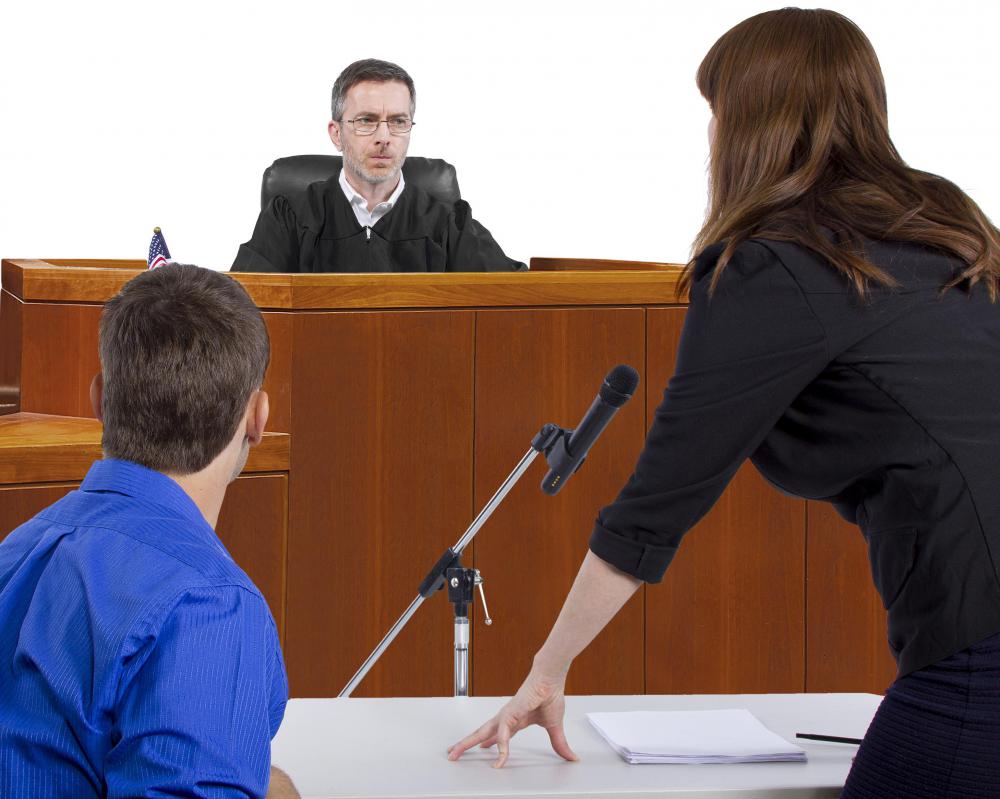At WiseGEEK, we're committed to delivering accurate, trustworthy information. Our expert-authored content is rigorously fact-checked and sourced from credible authorities. Discover how we uphold the highest standards in providing you with reliable knowledge.
What Happens at a Deposition?
Civil cases, such as those dealing with divorce, give each party the right to certain fact-finding sessions. A deposition is a type of fact-finding in which the lawyer for one party interviews or takes the testimony of the opposing party. The person being interviewed will be sworn under oath in a similar manner as when testimonies are given in court, and the lawyer will then begin asking questions regarding the case.
Often, a deposition will be tape recorded or video taped, but all are transcribed by a court reporter. Depositions are an important part of any case, and witnesses should be very mindful of their answers because the same laws regarding perjury and lying under oath-governing court testimonies still apply. If one party or witness is not present when the case goes to trial, then a deposition may used as evidence in place of a court testimony.

All things said during a deposition are used during a trial, so any admissions given during that time will be taken advantage of. Similarly, if there are any discrepancies between the deposition testimony and the court testimony, the opposing lawyer will use this to his or her advantage to disprove a witness’s credibility. For this reason, witnesses are advised to bring in any documents, planners, diaries, or notes that may help them more accurately remember events.

All parties are encouraged to bring their own lawyers when being questioned. He or she will give instructions on how to handle certain questions, but will not rehearse answers. Rather, the questioned party will be encouraged to ask for clarification on questions he does not understand and to listen very carefully. The lawyer may also object to questions that are irrelevant, vague, or misleading; and will likely cross-examine the person to clarify answers.

The opposing lawyer may also use a deposition to get a good idea of what the person will look like when actually sitting on the witness stand. This may include whether the person seems believable and likable, both factors which may help sway a jury in the person’s favor. His own lawyer may also take note of appearances, and help coach his or her client on how to better handle answering questions under pressure.
Depositions do not have juries and very rarely have judges present. In some rare cases, a lawyer may request the presence of a judge to handle disputes on certain questions. The opposing party may also be in attendance at the deposition, a rule that holds true for both sides of the case.
AS FEATURED ON:
AS FEATURED ON:













Discussion Comments
@Soulfox -- You are totally right and that is one of the many reasons I absolutely hate depositions. Simply put, they are used too often to intimidate parties. That kind of abuse of them should not be allowed. It is expensive and wastes everyone's time.
Parties to a lawsuit should always bring their attorneys to depositions. Without a lawyer there to object at the right times and help their clients clarify answers and explain things, parties can ruin their own cases through their answers.
In fact, it is often a strategy to drag parties into depositions in hopes of getting them to destroy their cases. That tactic could work if your lawyer isn't present to make sure that doesn't happen.
Post your comments